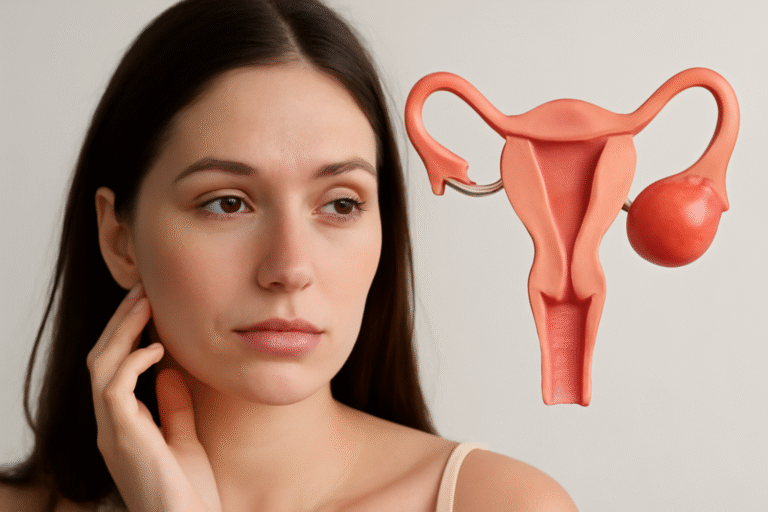What Does the Anti-Müllerian Hormone (AMH) Do?
Ovarian follicles generate the anti-Mullerian hormone (AMH), a vital biomarker. Unlike other hormones that vary during menstrual cycles, AMH stays constant, therefore reliably indicating ovarian reserve—the number of eggs a woman has remaining. Beyond forecasting egg count, what does the anti-Müllerian hormone perform? AMH is essential for follicle growth since it guarantees appropriate egg maturation. While high AMH levels could suggest disorders such as polycystic ovary syndrome (PCOS), low AMH levels usually indicate reduced ovarian reserve.
Understanding AMH is empowering for women negotiating fertility issues. It enables doctors to customize fertility therapies, forecast IVF reactions, and even evaluate early menopause risks. AMH does not, however, have a fertility “crystal ball”; it does not directly forecast natural conception probabilities but rather provides vital hints about biological timelines.
The Silent Struggles: When AMH Levels Dictate Emotional Battles
The Hidden Weight of Low AMH
A low AMH anti-Müllerian hormone finding can seem like a gut punch. Many women find their low ovarian reserve accidentally during regular fertility testing, which causes concern about their ability to conceive. Often, the emotional cost is undetectable: sleepless nights, strained relationships, and societal pressures to “hurry up” before time runs out.
High AMH and the PCOS Paradox
On the other hand, women with PCOS, a condition affecting one in ten, often have higher AMH levels. High AMH here indicates an excess of tiny follicles, but this does not mean improved fertility. Rather, hormonal imbalances and erratic ovulation make pregnancy more difficult, therefore increasing the complexity of the road.
Also Read: Effect Of Irregular Periods on Fertility
AMH Testing: A Double-Edged Sword of Modern Fertility Medicine
How Anti-Müllerian Hormone (AMH)Testing Works and What to Expect
Usually done with ultrasound to count antral follicles, AMH testing is a straightforward blood draw. Results classify ovarian reserve as low, normal, or high. Although the test is simple, the result interpretation calls for complexity. A 30-year-old with low AMH might still get pregnant naturally; a 40-year-old with comparable levels, however, would have more difficulty.
Should Every Woman Test Anti-Müllerian Hormone (AMH)?
Experts argue for all women’s routine AMH testing. Supporters say it enables educated family planning; opponents say it might lead to pointless worry. AMH testing is quite helpful for designing IVF protocols or looking into egg-freezing possibilities for those already battling infertility.
Beyond the Numbers: Empowering Yourself Amidst Fertility Challenges
Lifestyle Tweaks to Support Ovarian Health
Although AMH levels are mostly genetically set, studies now indicate that lifestyle changes could be beneficial. Avoiding smoking, stress management, and a nutrient-rich diet—think antioxidants like vitamin D and omega-3s—will maximize general reproductive health. Though these actions won’t significantly raise AMH, they help to improve the environment for current eggs.
Medical Interventions: From IVF to Donor Eggs
Though egg quality is as important as quantity, women with low AMH may still find success with fertility treatments such as IVF with high-dose stimulation. Some look into other routes, including adoption or using donor eggs. PCOS patients with high AMH may need drugs such as letrozole to trigger ovulation.
Breaking the Silence Around Infertility
Navigating Guilt, Shame, and Isolation
Stigma drives many people to suffer silently with fertility issues. Women with abnormal AMH levels could blame themselves or feel damaged, therefore intensifying their mental health issues. Talking to therapists or support groups can help to remove these weights and build resilience.
Advocacy and Hope
Public figures such as Chrissy Teigen and Gabrielle Union have courageously discussed their fertility struggles, therefore normalizing discussions about AMH and IVF. Their narratives serve as a reminder that low or high AMH does not determine value or parenting possibility; hope and choices remain.
The Future of Anti-Müllerian Hormone (AMH) Research
Innovations in Fertility Preservation
Researchers are looking at methods to use AMH for fertility preservation, including ovarian tissue freezing and in vitro follicle maturation. These developments might change choices for women with reduced ovarian reserve.
Lifestyle Mutiny: Small Acts, Seismic Shifts
While breathwork and forest therapy destroy cortisol’s tyranny, anti-inflammatory diets—Mediterranean or ketogenic—slash oxidative stress. Women take back control of their bodies, so eliminating endocrine disruptors like phthalates from skincare and plastics becomes a defiant act. From meal plans to mindfulness, every decision turns into a weapon in the silent battle of fertility.
The Unyielding Truth
Though it does not write the conclusion, AMH, anti-mullerian hormone, may script chapters of your fertility path. Resilience shows as the final superpower, whether one is fighting low reserves, PCOS, or unknown infertility. Look for fighters, not only doctors; expect statistics, not cliches. Though every step forward is a protest against silence and a proof of the unbreakable will of those who refuse to let a number determine their fate, the path is difficult.





[…] Also Read: Importance Of AMH For Pregnancy […]